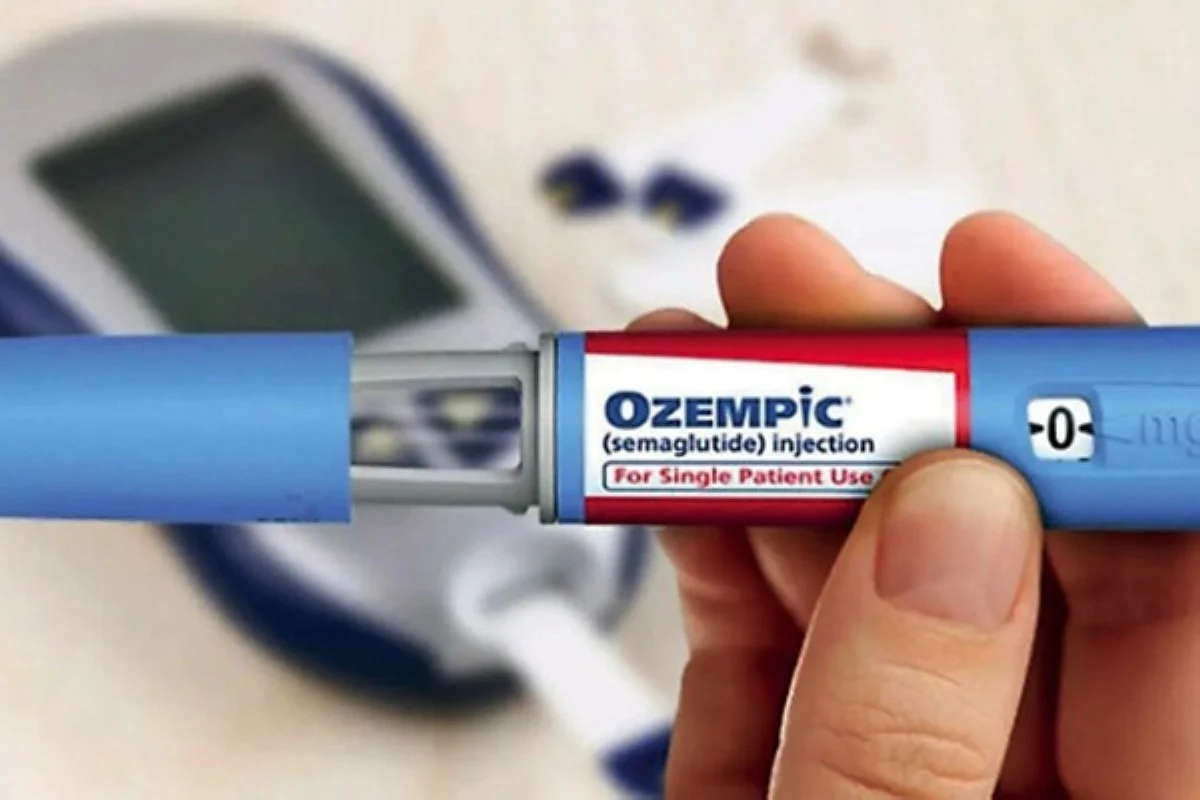15/10/2024
15/10/2024

NEW YORK, Oct 15: As the prices for Ozempic have increased in recent months, many individuals are seeking more affordable alternatives for managing diabetes or weight loss. However, some doctors and the U.S. Food and Drug Administration (FDA) are cautioning about the potential risks associated with using "knock-off brands" of semaglutides, which are part of the GLP-1 class of medications.
Dr. Brett Osborn, a Florida neurosurgeon and longevity specialist who has prescribed pharmaceutical-grade versions of these medications since 2019, expressed his concern about this trend. He noted, "Due to the cost of brand-name Ozempic, more and more people are turning to cheaper knock-off versions, often found online or through non-regulated channels." He explained that these alternatives are synthesized in non-medical environments lacking necessary quality assurance or quality control, making them inherently risky. Osborn warned of the potential harm these medications could cause due to the absence of oversight regarding their source or production quality, stating, "When they’re made in unregulated environments, there's no telling what you’re putting into your body."
Dr. Sue Decotiis, a weight-loss doctor in New York City, confirmed that while some individuals are searching for low-cost alternatives, the dangers of these options are becoming increasingly recognized. She recounted a case involving one of her patients who received medication from a pharmacy in Florida that later ceased operations, rendering the drug ineffective.
Decotiis pointed out that many illegitimate pharmacies lacking accreditation from state pharmacy boards often "just disappear," leaving patients unaware of the contents of their medications. "The biggest risk is that the patient has no idea what’s in the medications," she warned, noting that unscrupulous providers could add harmful fillers to the products. According to Osborn, medications like Ozempic require "precision in manufacturing," and he emphasized, "You should only be using pharmaceutical-grade versions prescribed by a licensed doctor." He cautioned that the risk associated with these alternatives is too high, with no regulations in place to ensure proper production.
Doctors agree that individuals should exercise caution when ordering medications online. Osborn warned, "Unless you’re getting the medication from a licensed pharmacy with a valid prescription from a doctor, purchasing Ozempic or its knockoffs online is dangerous." He highlighted that verifying the product's source, ingredients, and safety is impossible with these knock-off versions. He also mentioned instances of nurse practitioners stockpiling Ozempic knock-offs and selling them on social media platforms, leading to a significant black market for the drug.
While some online platforms might appear legal due to a healthcare provider writing the prescription, Decotiis pointed out that they can still pose risks. She noted, "It may be that there isn’t any personalized care or any body composition being followed." Furthermore, shortages of these unregulated medications are not uncommon, leaving patients frustrated after paying upfront without receiving the products they expected. "The buyer must be aware," she warned.
Decotiis identified a major red flag when an online platform offers to send medication directly. She cautioned, "If you can buy it directly, it is an unlawful site." Legitimate compound companies work exclusively with physicians and do not engage directly with patients.
Experts suggest that there are safer alternatives to purchasing knock-off brands if cost is a concern. Osborn stated, "Many pharmaceutical companies offer patient assistance programs — your doctor can guide you to those options." He added that there are other prescription medications that may be more affordable but still safe and effective for managing insulin levels and promoting weight loss. Metformin, a well-established diabetes medication, is one such example. Osborn stressed, "Under no circumstances should you turn to unregulated alternatives just to save money."
Decotiis acknowledged that many people find it "very difficult" to access Ozempic and similar medications due to their high costs. "These drugs are expensive, and it’s hard for many people to get the care they need," she explained. She elaborated that with compounded products, patients pay per ounce, while with big pharmaceutical companies, they typically pay for a monthly supply. "With the big pharma drugs, you’re paying more up front, but as it goes up in dose, it’s actually cheaper."
The FDA states that compounded medications, which are customized by a licensed pharmacist or physician to meet individual patient needs, are not FDA-approved. This means that the agency does not assess compounded drugs for safety, effectiveness, or quality before they hit the market. Osborn reiterated that medications like Ozempic should only be prescribed by a physician licensed to write prescriptions and not by a nurse practitioner during a telemedicine visit or a chiropractor.
"When used correctly, these medications are powerful tools, but can be dangerous in the wrong hands," he warned. "Always consult a health care provider with the proper training and experience in using these medications. Safety first."
Recently, both the FDA and the World Health Organization (WHO) have investigated cases of counterfeit Ozempic products. The FDA acknowledged, "FDA is aware that some patients and health care professionals may look to unapproved versions of GLP-1 (glucagon-like peptide-1 receptor agonists) drugs, including semaglutide and tirzepatide, as an option for weight loss." They added that this can be risky for patients, as unapproved versions do not undergo the FDA’s review process for safety, effectiveness, and quality prior to marketing.


